Book Chapter
Publication Types:
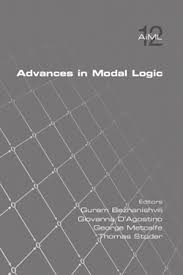
When Names Are Not Commonly Known: Epistemic Logic with Assignments
Abstract: In standard epistemic logic, agent names are usually assumed to be common knowledge implicitly. This is unreasonable for various applications. Inspired by term modal logic and assignment operators in dynamic logic, we introduce a lightweight modal predicate logic where names can be non-rigid. The language can handle various de dicto and de re distinctions in a natural way. The main technical result is a complete axiomatisation of this logic over S5 models.
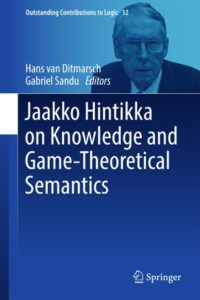
Beyond Knowing That: A New Generation of Epistemic Logics
Abstract. Epistemic logic has become a major field of philosophical logic ever since the groundbreaking work by Hintikka (1962). Despite its various successful applications in theoretical computer science, AI, and game theory, the technical development of the field has been mainly focusing on the propositional part, i.e., the propositional modal logics of “knowing that”. However, knowledge is expressed in everyday life by using various other locutions such as “knowing whether”, “knowing what”, “knowing how” and so on (knowing-wh hereafter). Such knowledge expressions are better captured in quantified epistemic logic, as was already discussed by Hintikka (1962) and his sequel works at length. This paper aims to draw the attention back again to such a fascinating but largely neglected topic. We first survey what Hintikka and others did in the literature of quantified epistemic logic, and then advocate a new quantifier-free approach to study the epistemic logics of knowing-wh, which we believe can balance expressivity and complexity, and capture the essential reasoning patterns about knowing-wh. We survey our recent line of work on the epistemic logics of “knowing whether”, “knowing what” and “knowing how” to demonstrate the use of this new approach.

Knowing value logic as a normal modal logic
Abstract. Recent years witness a growing interest in nonstandard epistemic logics of “knowing whether”, “knowing what”, “knowing how”, and so on. These logics are usually not normal, i.e., the standard axioms and reasoning rules for modal logic may be invalid. In this paper, we show that the conditional “knowing value” logic proposed by Wang and Fan (2013) can be viewed as a disguised normal modal logic by treating the negation of the Kv operator as a special diamond. Under this perspective, it turns out that the original first-order Kripke semantics can be greatly simplified by introducing a ternary relation ![]() in standard Kripke models, which associates one world with two i-accessible worlds that do not agree on the value of constant c. Under intuitive constraints, the modal logic based on such Kripke models is exactly the one studied by Wang and Fan (2013,2014). Moreover, there is a very natural binary generalization of the “knowing value” diamond, which, surprisingly, does not increase the expressive power of the logic. The resulting logic with the binary diamond has a transparent normal modal system, which sharpens our understanding of the “knowing value” logic and simplifies some previously hard problems.
in standard Kripke models, which associates one world with two i-accessible worlds that do not agree on the value of constant c. Under intuitive constraints, the modal logic based on such Kripke models is exactly the one studied by Wang and Fan (2013,2014). Moreover, there is a very natural binary generalization of the “knowing value” diamond, which, surprisingly, does not increase the expressive power of the logic. The resulting logic with the binary diamond has a transparent normal modal system, which sharpens our understanding of the “knowing value” logic and simplifies some previously hard problems.
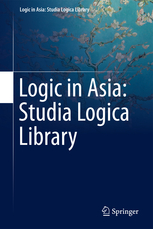
Epistemic Informativeness
Abstract. In this paper, we introduce and formalize the concept of epistemic informativeness (EI) of statements: the set of new propositions that an agent comes to know from the truthful announcement of the statements. We formalize EI in multi-agent Public Announcement Logic and characterize it by proving that two basic statements are the same in EI iff the logical equivalence of the two is common knowledge after a certain announcement. As a corollary applied to identity statements, ![]() and
and ![]() are different in EI iff
are different in EI iff ![]() is not common knowledge. This may shed new light on the differences in cognitive value of
is not common knowledge. This may shed new light on the differences in cognitive value of ![]() and
and ![]() , even when they are both known to be true, as long as
, even when they are both known to be true, as long as ![]() is not commonly known to all.
is not commonly known to all.
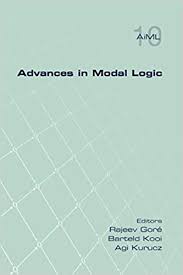
Conditionally knowing what
Abstract. Classic epistemic logic focuses on propositional knowledge expressed by “knowing that” operators. However, there are various types of knowledge used in natural language, in terms of “knowing how”, “knowing whether”, “knowing what”, and so on. In [10], Plaza proposed an intuitive know-what operator which was generalized in [16] by introducing a condition. The latter know-what operator can express natural conditional knowledge such as $\backslash$I know what your password is, if it is 4-digits”, which is not simply a material implication. Essentially this know-what operator packages a first-order quantifier and an S5-modality together in a non-trivial way, thus making it hard to axiomatize. In [16] an axiomatization is given for the single-agent epistemic logic with both know-that and know-what operators, while leaving axiomatizing the multi-agent case open due to various technical difficulties. In this paper, we solve this open problem. The completeness proof is highly non-trivial, compared to the singleagent case, which requires different techniques inspired by first-order intensional logic.

Almost necessary
Abstract. A formula is contingent if it is possibly true and possibly false. A formula is non- contingent if it is not contingent, i.e., if it is necessarily true or necessarily false. In an epistemic setting, a formula is contingent’ means that you are ignorant about its value, whereas a formula is non-contingent’ means that you know whether it is true. Although non-contingency is definable in terms of necessity as above, necessity is not always definable in terms of non-contingency, as studied in the literature. We propose an almost-definability’ schema AD for non-contingency logic, the logic with the noncontingency operator as the only modality, making precise when necessity is definable with non-contingency. Based on AD we propose a notion of bisimulation for non- contingency logic, and characterize non-contingency logic as the (non-contingency) bisimulation invariant fragment of modal logic and of first-order logic. A known pain for non-contingency logic is the absence of axioms characterizing frame properties. This makes it harder to find axiomatizations of non-contingency logic over given frame classes. In particular, no axiomatization over symmetric frames is known, despite the rich results about non-contingency logic obtained in the literature since the 1960s. We demonstrate that the almost-definability’ schema AD can guide our search for proper axioms for certain frame properties, and help us in defining the canonical models. Following this idea, as the main result, we give a complete axiomatization of non-contingency logic over symmetric frames.
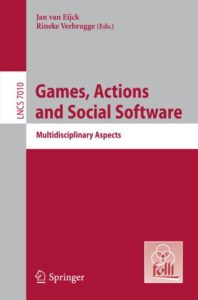
On the logic of lying

Not All Those Who Wander Are Lost: Dynamic Epistemic Reasoning in Navigation
Abstract. In everyday life, people get lost even when they have the map: they simply may not know where they are in the map. However, when moving forward they may have new observations which can help to locate themselves by reasoning. In this paper, we propose and develop a semantic-driven dynamic epistemic framework to handle epistemic reasoning in such navigation scenarios. Our framework can be viewed as a careful blend of dynamic epistemic logic and epistemic temporal logic, thus enjoying features from both frameworks. We made an in-depth study on many model theoretical aspects of the proposed framework and provide a complete axiomatization.
